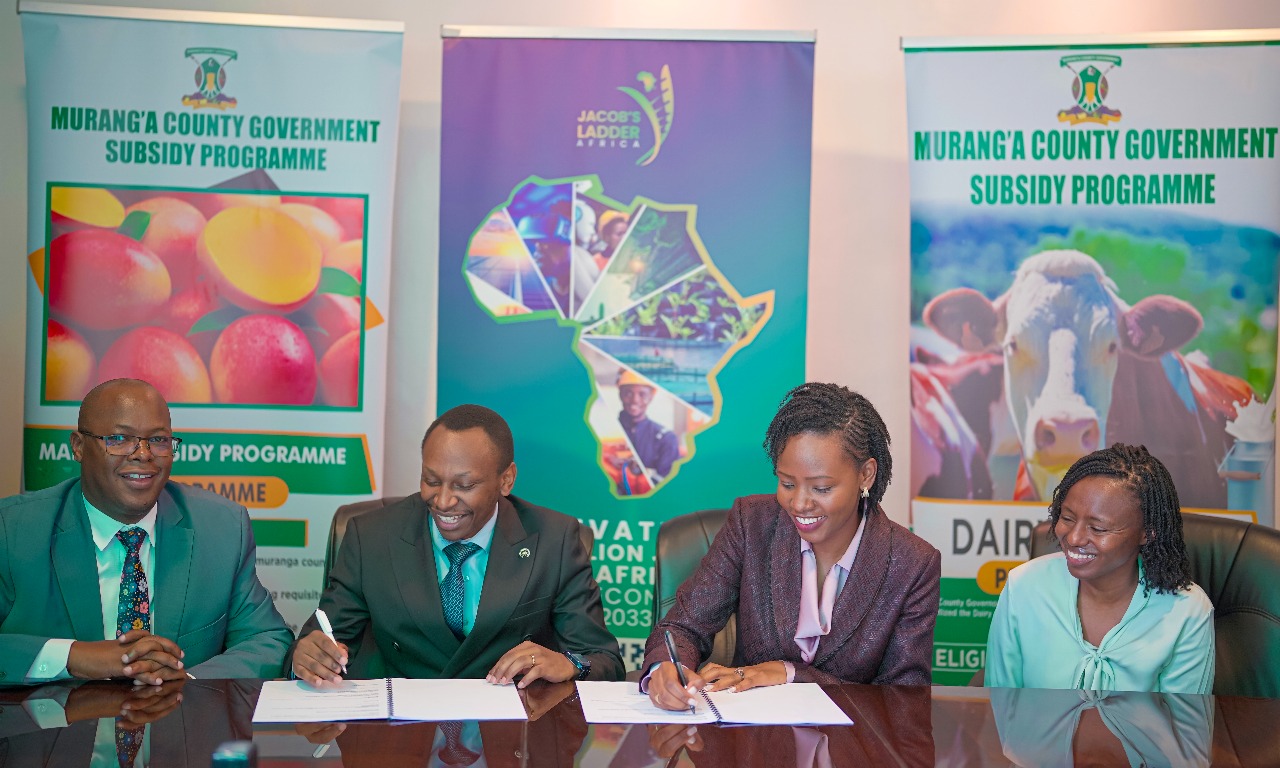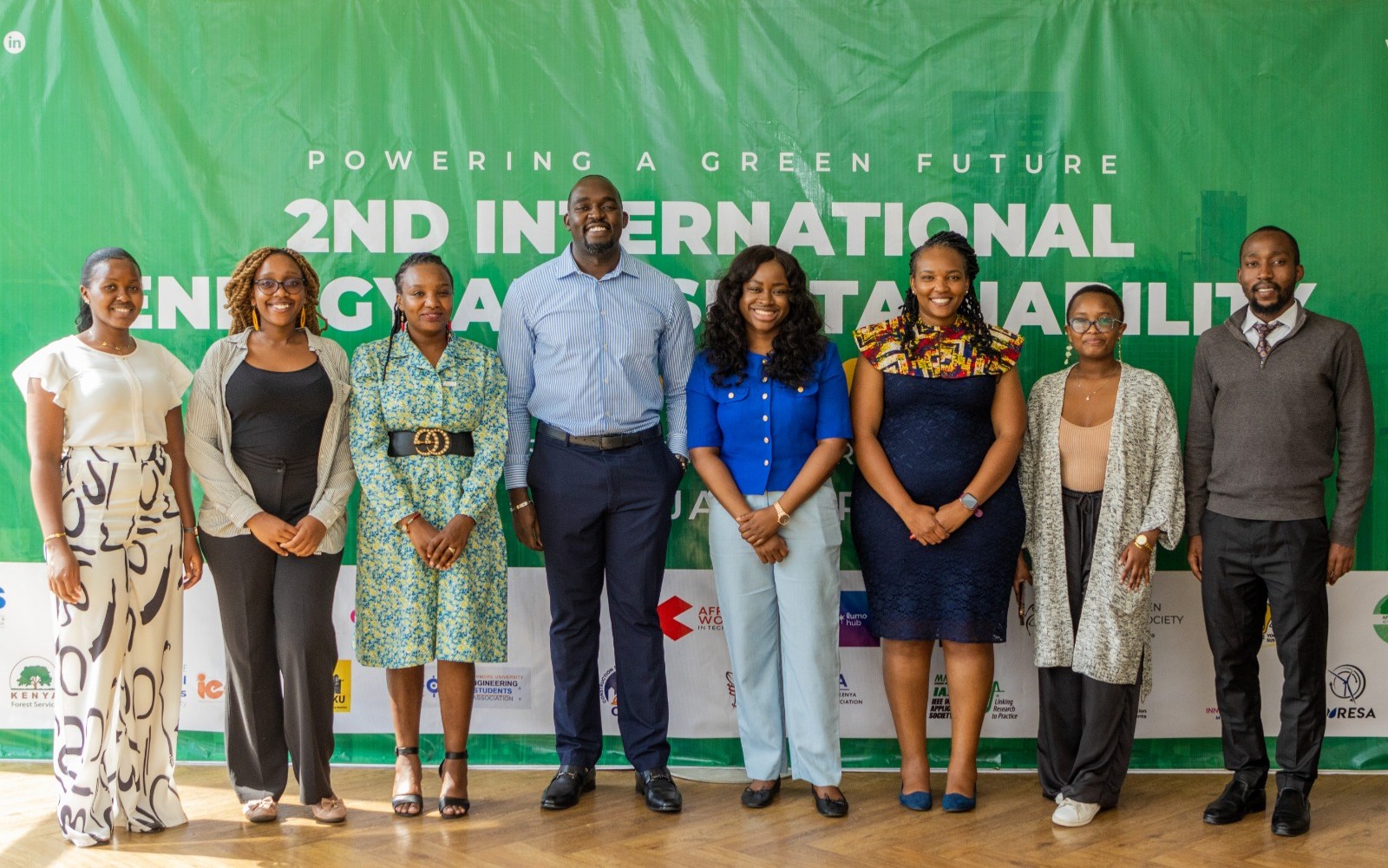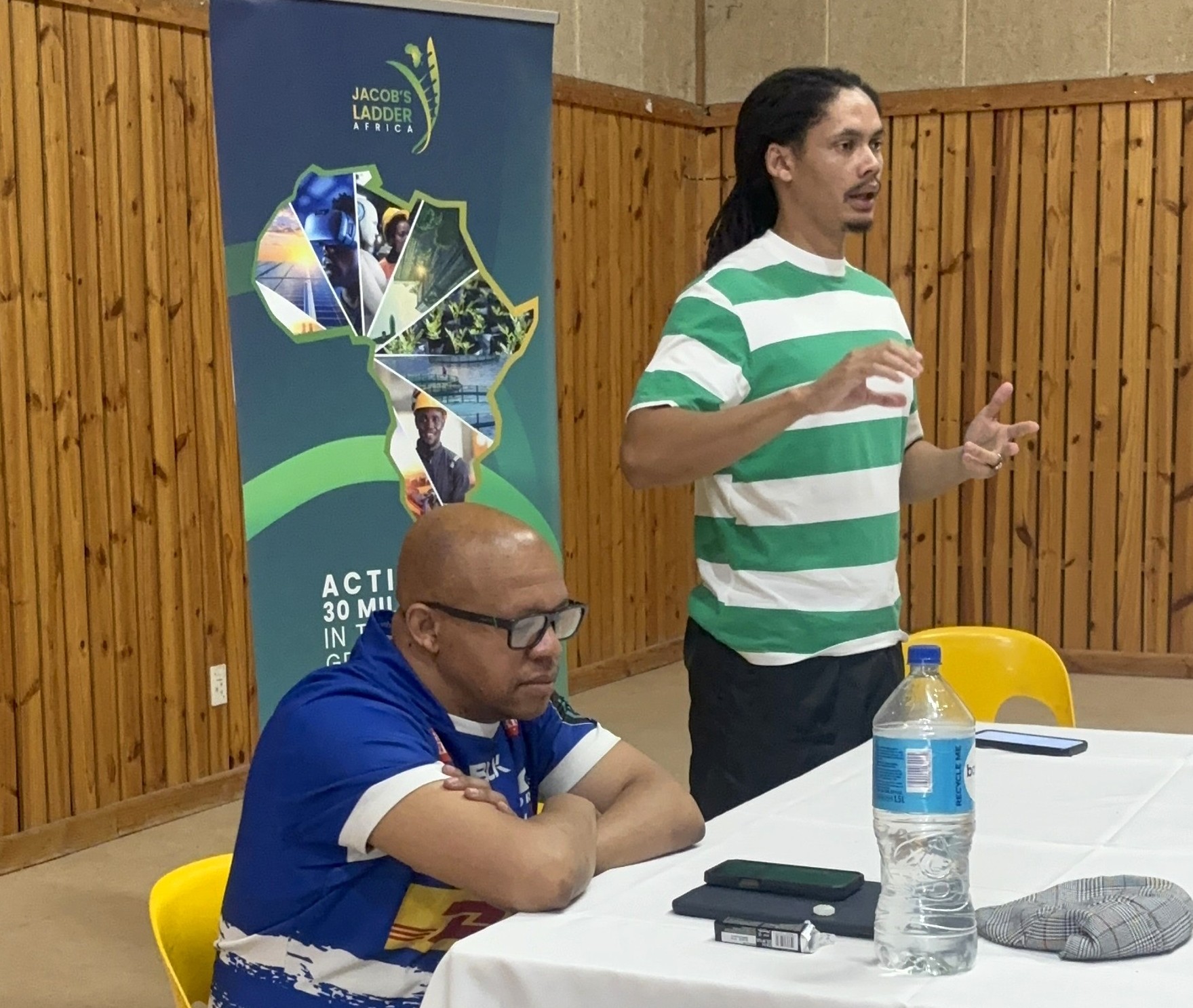On Tuesday 27th May 2025, the County Government of Murang’a and Jacob’s Ladder Africa (JLA) entered a landmark partnership that is set to reshape agricultural livelihoods through the lens of climate resilience and green job creation. The two parties officially signed a Memorandum of Understanding (MoU) at JLA’s headquarters, marking the beginning of a bold, scalable model to tackle climate vulnerability, food insecurity, and rural unemployment.
The ceremony was attended by high-level officials including Deputy Governor H.E. Stephen Munania, CECM Agriculture, Trade, Industrial Relations and Cooperative Development, Mr. Paul Mugo, CECM Agriculture, Livestock and Fisheries, Dr. Apollo Maina, County Attorney Mr. James Kamau Thuku, and County Director of Agriculture and Crops, Mr. Peter Muchiri.
At the heart of this collaboration lies an innovative vision: to elevate climate-resilient crops, most notably cassava, as engines of rural economic transformation. Cassava, known for its adaptability to drought and poor soil conditions, is particularly well-suited to Kenya’s changing climate. According to the Food and Agriculture Organization (FAO), cassava yields can be maintained with 30-40% less rainfall than maize, and can yield up to 40 tons per hectare under improved conditions making it a strategic staple for climate adaptation.
This initiative will not only increase cassava production but also unlock value across the entire agricultural value chain such as in:
- Production: Farmers, agronomists, seed multipliers, and agritech service providers will support the scaling of cassava cultivation.
- Processing & Value Addition: Local processing hubs will create jobs for machine operators, quality controllers, food technologists, and packaging specialists; transforming raw cassava into flour, starch, animal feed, and bio-waste products like briquettes and compost.
- Market Access: Sales agents, logistics coordinators, retail partners, and distribution networks will link these products to domestic and regional markets, with potential to serve the growing demand for gluten-free products in Kenya and beyond.
- Support Services: Additional roles will emerge in training, micro-finance, input supply chains, and equipment maintenance, building a supportive ecosystem for long-term sustainability.
Despite being the backbone of rural agriculture, women make up only 20% of landholders in Kenya and are significantly underrepresented in commercial value chains. This program will seek to correct that imbalance by offering training, financing, and market entry points specifically designed for women and youth.
Through partnerships with local institutions and technical support providers, JLA and Murang’a County will help equip beneficiaries with business development skills, financial literacy, and access to climate-smart technologies upon the conduction of a comprehensive feasibility study.
This model is designed to scale across other climate-vulnerable regions in Kenya, especially Arid and Semi-Arid Lands (ASALs), which represent over 80% of Kenya’s landmass and are home to about 38% of the population.
These regions are on the frontlines of climate change, facing food insecurity rates up to 70% during drought years. By localizing climate-resilient agriculture, this partnership offers a practical, replicable solution for strengthening household incomes while improving food availability.
By reimagining agriculture as a driver of green job growth, gender equity, and climate smart resilience, this partnership sets a precedent for what inclusive development can look like in a warming world. With vision, coordination, and investment, Murang’a is poised to become a beacon and examplar for rural transformation across Kenya and Africa.






